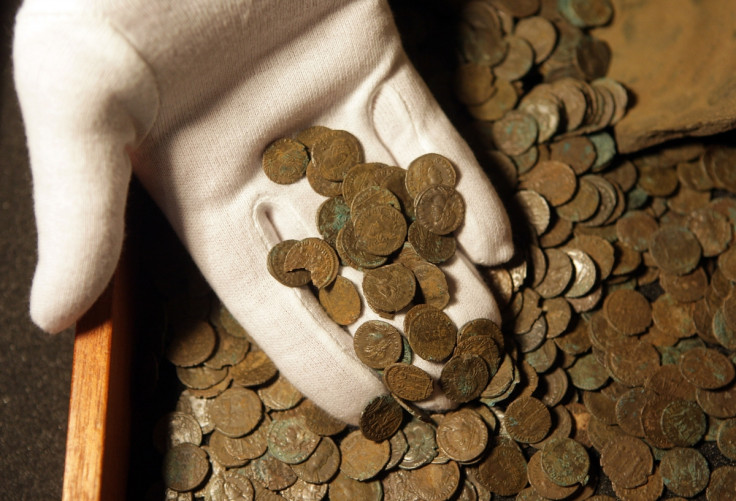Huge haul of ancient Roman coins unearthed near Seville in Spain

Some construction workers chanced upon a huge haul of ancient Roman coins near Seville in southern Spain while carrying out routine work on underground water pipes. The digging unearthed about 1,300 pounds or 600kg of bronze coins that are estimated to be worth millions of euros. Local authorities are now planning to carry out an archaeological excavation at the site.
The collection of coins was found in the town of Tomares near Seville, the Guardian reported, citing local authorities. The coins that date back to the late third and early fourth centuries, were reportedly found inside 19 containers, called Roman amphoras. They carry stamps with the inscriptions of emperors Maximian and Constantine on both sides.
Addressing a news conference, Ana Navarro, head of Seville's archaeology museum, was quoted as saying that most of the coins in the "unique" collection seem newly minted.
"The majority was newly minted and some of them probably were bathed in silver, not just bronze," Navarro was quoted as saying. Navarro said the coins were certainly worth several million euros, noting that it was difficult to put an economic value on the coins as their real value is historical that can't be calculated.
The coins were apparently not circulated for mass use as they showed little evidence of wear and tear, Spain's English newswire, The Local, reported, citing experts. Experts also revealed that the containers were smaller in size than the containers that were usually used during that time to transport wine and grain. They believe the amphoras were specially designed to store money, which were part of a tax collection or levies paid to the army.
"We have a team looking into the discovery right now. We believe it is hugely important and will have more information very soon," a spokesman at Andalucia's Ministry of Culture in Seville told The Local.
Experts at Seville's archaeology museum are reportedly examining the coins to extract more information.
© Copyright IBTimes 2025. All rights reserved.





















